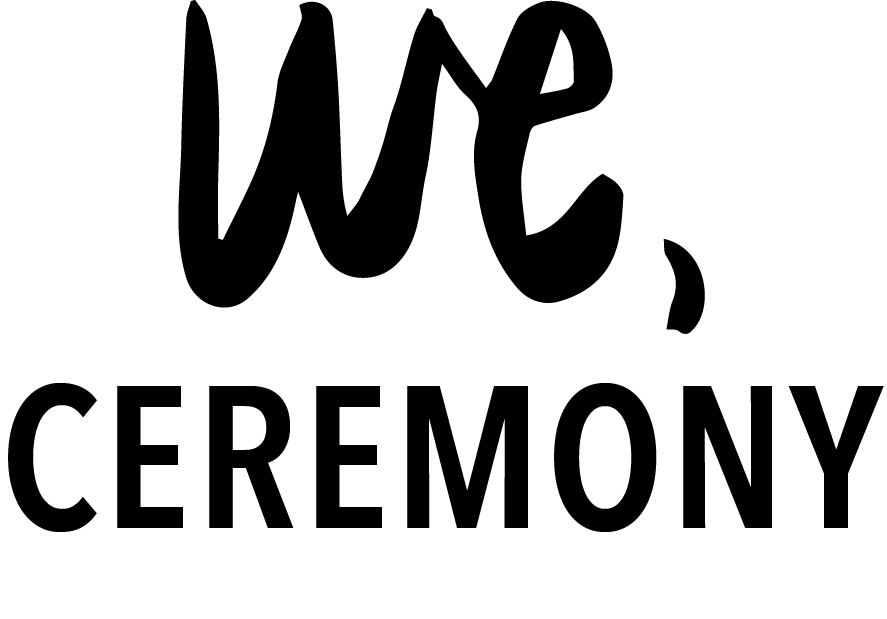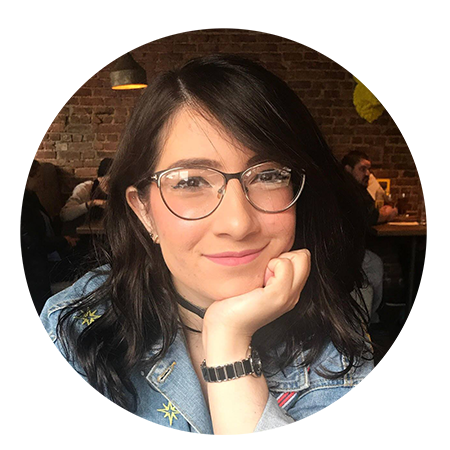Andrea González-Ramírez
Journalist
Andrea González-Ramírez
Andrea González-Ramírez describes her introduction into journalism as accidental. Upon reading one of her many articles, most notably at Refinery29, however, you'll find her voice purposeful, disseminating global and political news. González-Ramírez's passion for writing and journalism is a result of her commitment to people. Her work extends to Los Que Se Fueron, a platform featuring interviews from members of the Puerto Rican Diaspora, a community close to her identity. Through her volumes of work, González-Ramírez reveals her insight into the power of real people's stories. Her work in reporting and her dedication to storytelling make for a trustworthy voice and source for our time and our diverse communities.
For those of us who are not familiar with your work as a journalist at Refinery29 and other media outlets, please share with us how you got started and what you aim to accomplish through your work?
I fell into journalism pretty much by accident. I applied directly to the communications department at the University of Puerto Rico, Río Piedras Campus, where I did my undergrad, after my best friend recommended I try journalism. I loved to write and it seemed more feasible than studying history or literature. If I didn’t like it, I could always switch majors. But I fell in love with it in the first semester. It was crazy to realize I could write stories about real people and they were much more interesting and complex than fictional characters. From there, it was kind of nonstop. I interned and worked as a journalist in Puerto Rico before relocating to New York after graduation to pursue a master’s degree in International Reporting at the CUNY Graduate School of Journalism (now the Craig Newmark Graduate School of Journalism at CUNY).
Funnily enough, I sort of fell into Refinery29 by accident too. After finishing my MA, I spent six months freelancing and trying to get a full-time job. Eventually, I came across this summer internship for our then Global News & Politics desk. I was brought on because of my international reporting background at CUNY, but this was in 2016, and with the presidential election on the horizon, suddenly politics became my main beat. My internship led to a full-time offer, and I’ve been there ever since.
I believe the connective thread of my reporting has always been people and that’s the focus I have when I write about things such as womxn in politics; reproductive justice; immigration; Latinx issues; healthcare; sexual harassment; the Trump administration, and the myriad topics I find myself covering daily.
how did you find your voice as a journalist and what calls you to write?
The late Gabriel García Márquez called journalism “el mejor oficio del mundo” — the best job in the world. In a 1996 speech, he said: “Pues el periodismo es una pasión insaciable que sólo puede digerirse y humanizarse por su confrontación descarnada con la realidad. Nadie que no la haya padecido puede imaginarse esa servidumbre que se alimenta de las imprevisiones de la vida.” That translates to: “For journalism is an insatiable passion that can only be digested and humanized by its stark confrontation with reality. No one who has not suffered can imagine that servitude that feeds on the unpredictability of life.”
That’s what journalism feels like to me every day, and it’s why I push on every day, even as the industry undergoes brutal changes and faces challenges like severe harassment and violence created by rhetoric that brands us singularly as “the enemy of the people.” It may seem naive or cliché, but it’s true: More than a job, journalism, to me, feels like a civic duty. Finding my voice as a journalist has been part of the process of realizing that I’m in a very privileged position to uplift the voices and concerns of the most vulnerable. It really is a lot of responsibility.
As an influential writer and commentator in the Latinx community, what are you most excited about in how we consume digital media?
The digital space has allowed for the democratization of information. There are still those who are gatekeepers, but now more than ever before, consumers of information have more resources at their fingertips and the power to choose who and what to support. And while journalism still faces terrible issues with diversity and inclusion, digital media has allowed for members of underrepresented communities to shine and showcase their worth by building loyal audiences and online communities.
tell us a little bit about your collection of interviews - “Los Que Se Fueron.” What inspired to you collect stories from folks of the Puerto Rican Diaspora and how do you see radical storytelling as form of healing within our communities?
I left Puerto Rico when I was 21, and I reflect often on how privileged I’ve been. My transition to New York was as smooth as it could’ve been – I had a strong support system, was fully bilingual, economically secure, and so on. Even when things got difficult and life kicked my ass, I still knew I had tools available. But I know that many of my fellow boricuas didn’t have the same experience as me, particularly those who come from marginalized communities. Los Que Se Fueron was an attempt to showcase that diversity of experiences among young Puerto Ricans who like me are pursuing a different life outside the island. Yes, life in the diaspora can look like a total success story but there’s also people who continue to struggle, even when they try to pursue the so-called “American Dream.”
At the heart of radical storytelling is empathy and compassion for the people who are trusting you with their stories. That’s why it can serve as a tool to heal communities and build bridges that might have been destroyed by the issues that plague us. I practiced this with Los Que Se Fueron, and I still try to do so every day.
At what point in your life did you become interested in politics? What advice do you have for people to understand and navigate our political system?
I’ve always been pretty political. I believe that it’s the direct result of being born in a colony and a really patriarchal society such as the Puerto Rico; what stemmed from that was my raging feminism and a belief that what is personal is also political. But I was never particularly interested in politics, from a reporting perspective, until I came to Refinery29 and started working with people like Torey Van Oot, who’s now a politics and government reporter at The Minnesota Star-Tribune.
Navigating the political system can be extremely tough, especially for those who are marginalized in today’s society. However, if we want to create and sustain a healthy democracy, I do think people must make sure to trust venerable news outlets in order to stay informed; vote and keep holding local, state, and federal lawmakers accountable; and get involved in causes for which they care. That can feel very overwhelming, but it really doesn’t have to be. There are a ton of resources out there. I recommend starting here, here, and here.
Strong unions make stronger communities. Congrats on Refinery29's latest win to unionize under the Writers Guild of America East! As a womxn of color, what are you most looking forward to being a part of a union?
Our editorial team unionized because we believe it was the feminist answer to our own workplace issues. We’re the first womxn’s media outlet to independently unionize, but we owe it to the womxn of outlets such as Jezebel and the now-defunct Racked, who organized with their sister sites at Gizmodo Media Group and Vox Media, respectively. We stand on the shoulders of giants and I’m so grateful for them and for my colleagues, because we just want to make our workplace and this industry better. Refinery29 recently voluntarily recognized our union, and I’m looking forward to this being an opportunity for our newsroom to be more fair, diverse and equitable. And hopefully, other digital shops will look to follow suit and do the same.
Our lives today are flooded with news and information. How do you take care of yourself while making sure you’re not desensitized by the media?
I’m very lucky to have an extraordinary support system in my partner, my family as well as my closest friends. The news these days is extremely overwhelming — especially when tragedy and horror strikes, because I’m right there monitoring, absorbing and then writing about everything that fits our mission at R29. My loved ones are my rocks, who consistently remind me to unplug and take care of myself. Maybe I still haven’t really figured out how to do that, but sometimes, it might look like a glass of wine and a good cry after work, a weekend drive or good food. Other times, it might mean meeting up with a friend for a few hours to hash it out or seeing that movie you’ve been talking about for weeks or just going to bed at a reasonable hour and really resting. I’m also a big proponent of turning off email notifications on the weekends and taking social media breaks.
Last month we discussed the meaning of home and what it means to us. We’d love to know how you define home and when you feel most at home?
“Home is where the heart is” might sound like a cliché, but it feels absolutely true to me. Home is Puerto Rico, where my family and friends are, and home is also the life I’ve built with my partner and friends in New York. I feel the most at home whenever I’m with mi gente, my tribe, my loved ones — regardless of the physical space.
what are some of your other passions?
It really might come as a surprise, but I think my biggest passion, even more so than journalism, is well… Puerto Rico. I really adore my island, our culture, our history, which is why I cry every time I arrive and leave; it’s why I constantly try to uplift my fellow boricuas and spotlight our issues. I’m also very passionate about supporting womxn, particularly young Latinx womxn. Because of that, in the past year, I’ve tried to do as much mentoring as I can, and it’s been incredibly rewarding. Recently, I’ve also found a lot of joy in cooking because it allows me the space to focus only on myself. (Shoutout to my Mami and my mother-in-law for all the inspo!)
What inspires you today and who are some of your mentors?
I’m a huge fan of the work of Maria Hinojosa, Tanzina Vega, Nikole Hannah-Jones, Scaachi Khoul, and Rebecca Traister, to name just a few. These are incredible journalists and writers who I admire and who I would love to emulate. If anyone wants to join this industry, they should identify people who they look up to and read them all the time. It’s a great way to stay inspired and help chart your career and what you want for your life!
In terms of mentors, I owe a lot to womxn such as my editor Ashley Edwards, my colleague Bourree Lam, Torey (whom I mentioned earlier), and my dear friend of a decade and fellow boricua Frances Solá Santiago. But there are many others whose support and help has made all the difference in my career. I believe in the Shine Theory; I try to surround myself with amazing and admirable womxn who make my life better every day.
Follow Andrea on Twitter
Read Andrea’s work on Refinery29
Learn more about Andrea on her website




